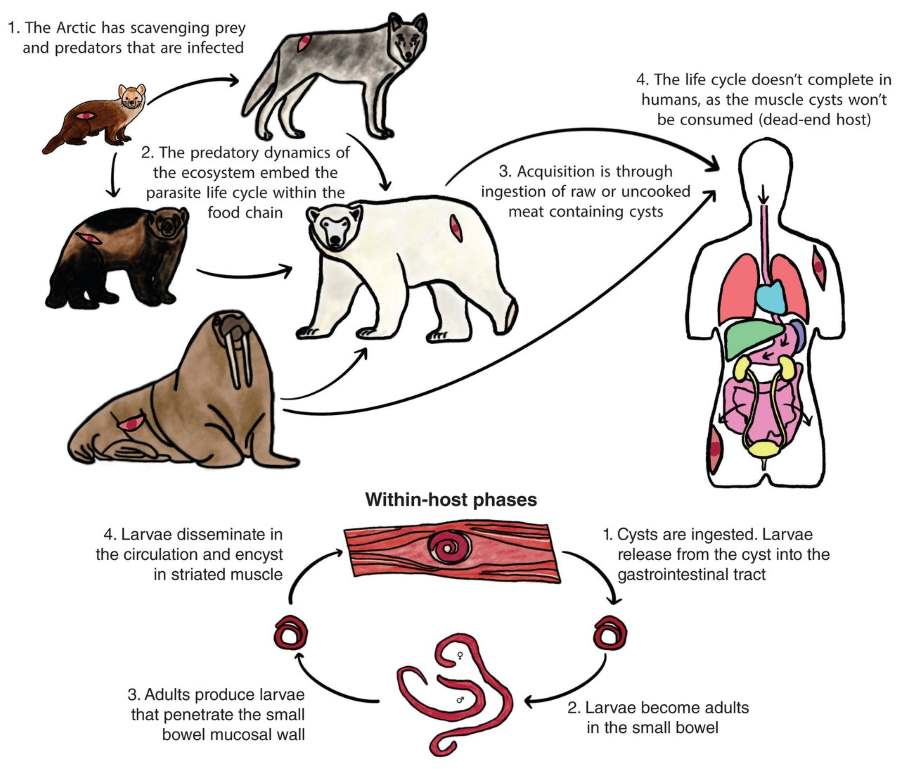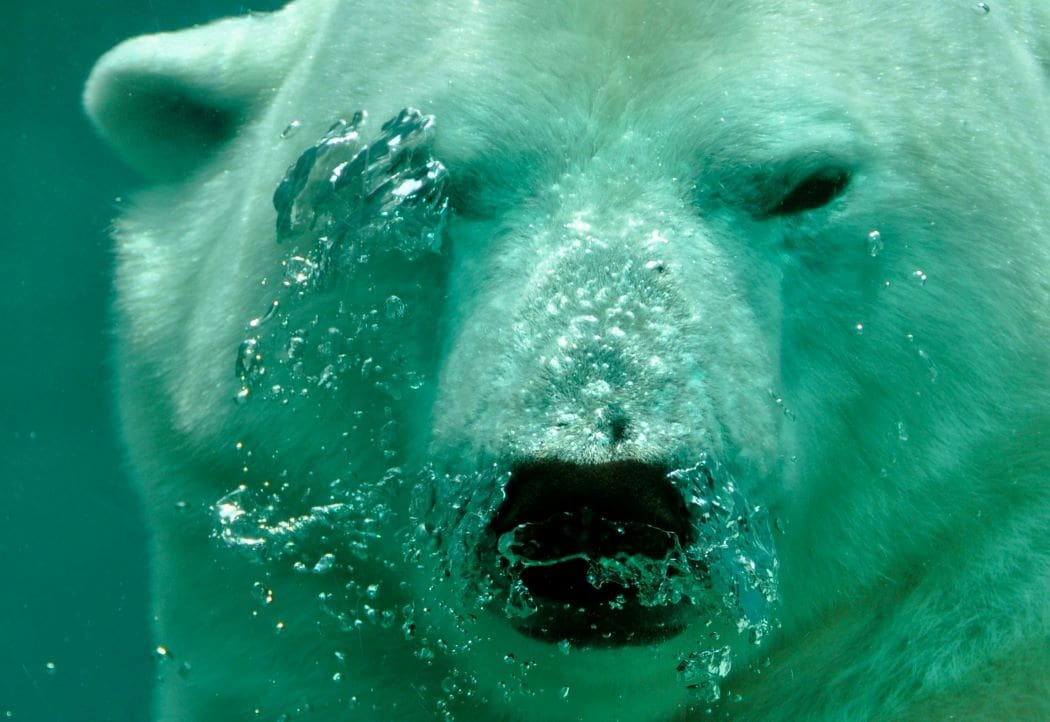A new review sheds light on zoonotic infections — diseases transmitted between animals and humans—in the Canadian Arctic, a region increasingly impacted by climate change and global interest.
Published in the Canadian Medical Association Journal (CMAJ), the review outlines clinical guidance for identifying and managing seven zoonotic infections among people in the Arctic.
“Indigenous Peoples continue to be caretakers of the Canadian Arctic; their cultural connection with the Arctic environment and ecosystem generates unique exposures to the zoonotic diseases discussed, as well as others not covered here,” notes Dr. Justin Penner, an infectious diseases physician at CHEO, Ottawa, and Qikiqtani General Hospital, Iqaluit, with coauthors.

The Canadian Arctic spans three bioclimates — subarctic, low Arctic, and high Arctic — encompassing a vast area inhabited by Inuit, Gwich’in, and Athabaskan peoples. The review emphasizes incorporating Inuit Qaujimajatuqangit (Inuit Traditional Knowledge) alongside the One Health principle, which recognizes the interplay between human, animal, and environmental health.
“Cultural proximity and interaction with the Arctic ecosystem are important factors in understanding some of the under-recognized infectious diseases within the region. Clinicians’ respect and understanding of these customs can highlight infectious exposures, guide clinical care, and inform prevention programs,” the authors write.
Traditional practices, such as consuming “country foods” — wild game, fish, and sea mammals — hunting, and animal skin preparation, are integral to Arctic life but also contribute to zoonotic infection risks.
Climate change exacerbates these risks by altering the ecosystem. Diminishing sea ice disrupts animal migration patterns, permafrost thawing affects traditional food storage methods like fermentation, and warmer temperatures allow disease-carrying insects to spread to higher latitudes.
The review illustrates how these environmental changes influence disease transmission and highlights the need for culturally informed and ecosystem-sensitive healthcare approaches to mitigate rising health threats in the Arctic.
Journal Reference:
James E. Burns, Gunjan Mhapankar, Elaine Kilabuk, Justin Penner, ‘Zoonotic infections of the Canadian Arctic’, Canadian Medical Association Journal 197 (2) E34-E43 (2025). DOI: 10.1503/cmaj.240541
Article Source:
Press Release/Material by Canadian Medical Association Journal (CMAJ)
Featured image credit: Pixabay | Pexels




